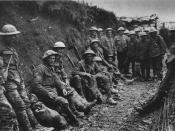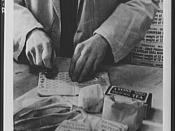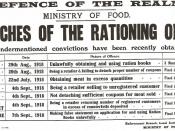How did the Second World War Affect Family Life in Britain Between 1939-45?
The Blitz comes from a German word meaning lightning. It was the sustained strategic bombing of the United Kingdom by Germany during the Second World War. Between 7 September 1940 and 21 May 1941 there were major raids (attacks in which more than 100 tons of high explosives were dropped) on 16 British cities. Over a period of 267 days (almost 37 weeks), London was attacked 71 times, Birmingham, Liverpool and Plymouth eight times, Bristol six, Glasgow five, Southampton four, Portsmouth three, and there was also at least one large raid on another eight cities. This was a result of a rapid escalation starting on 24 August 1940, when night bombers aiming for RAF airfields drifted off course and accidentally destroyed several London homes, killing civilians, combined with Churchill's immediate response of bombing Berlin. The bombing (Blitz) in World War Two affected family life a lot.
The result of bombings left towns and cities in ruins, most cities were crumbled down to the ground. For the safety of the youngest generation all kids under the age of eligibility to join the army were sent to the countryside to protect themselves where very minimal bombings took place. The result of kids being sent away was morale boost would decrease because they would not see each other and most likely not hear from each other either. Most people were left with no houses as they were destroyed in the bombings.
At the start of World War II, the United Kingdom imported 20 million long tons of food per year including more than 50% of its meat, 70% of its cheese and sugar, nearly 80% of fruits and about 70% of cereals and fats. The population was between 46 million...


